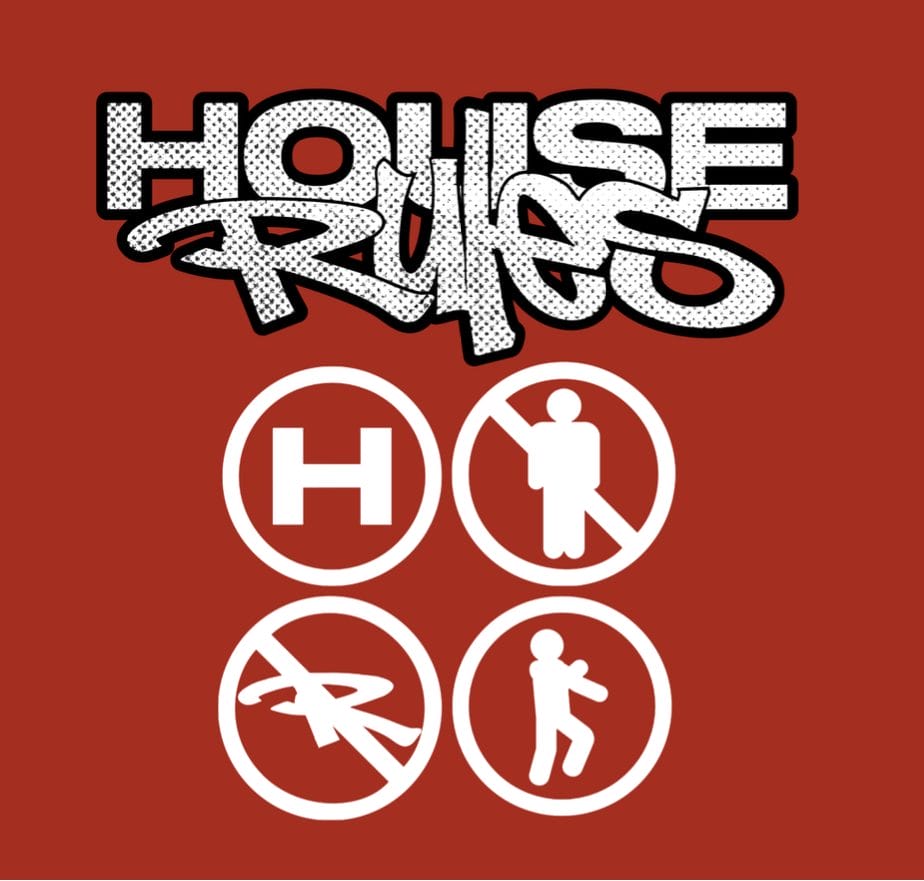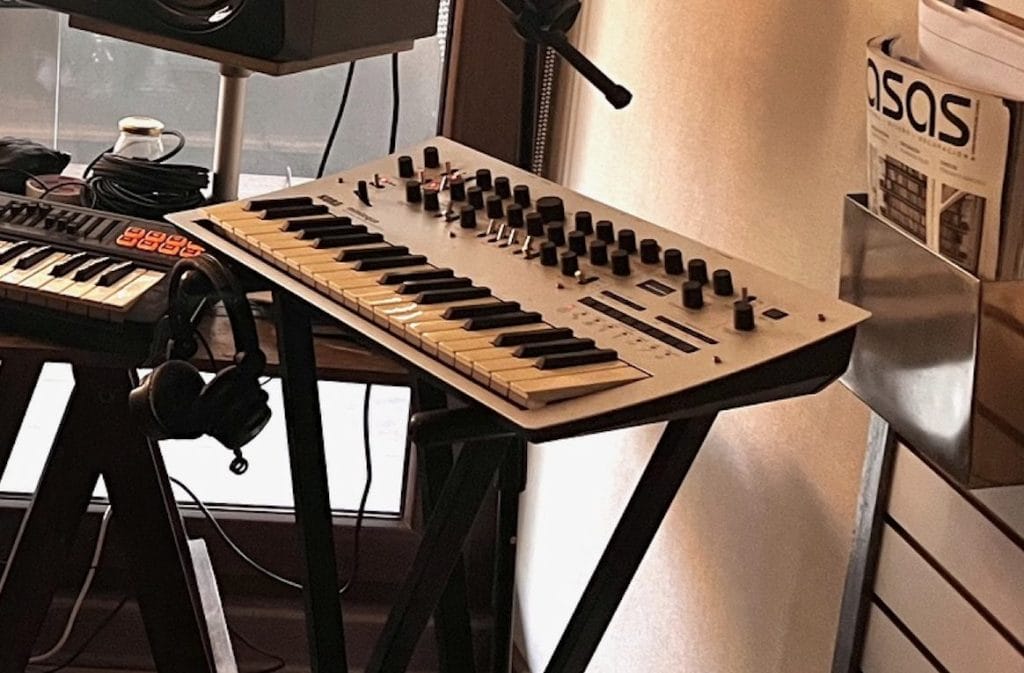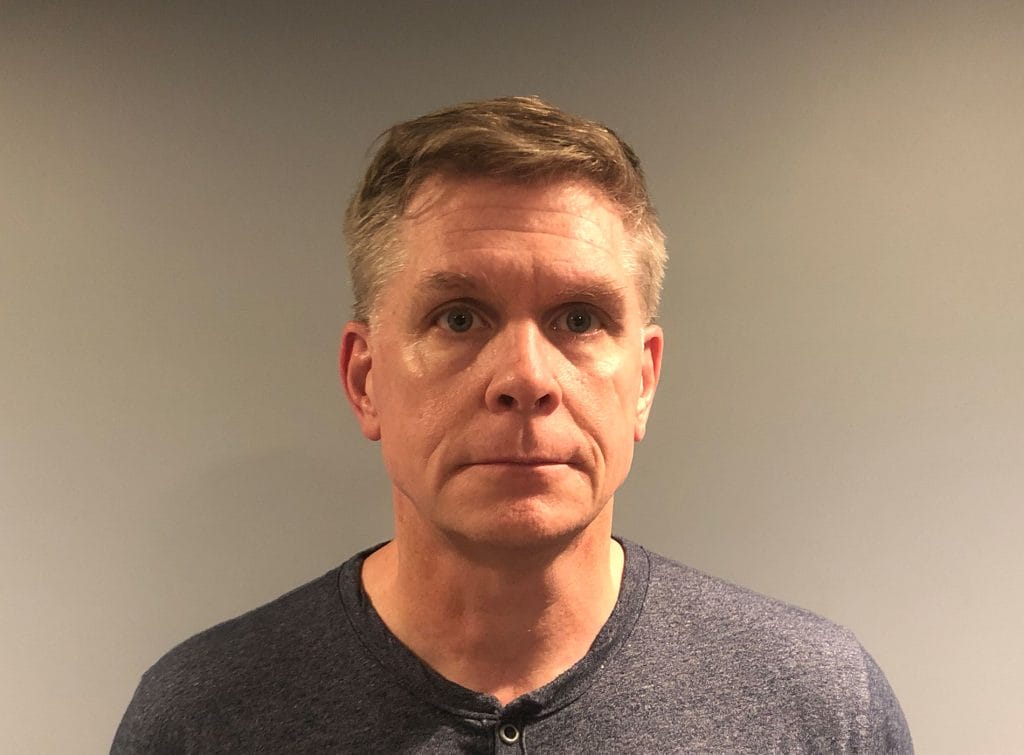Streaming has always been a complicated space for DJs. Between takedowns, lack of credit, and platforms that never seemed designed with DJ culture in mind, the gaps have been obvious. That’s where LFG.TV comes in. Launching August 30 with a global pre-party featuring names like Todd Terry, David Morales, and Cristian Varela, the platform sets out to give DJs the one thing they’ve been missing online: a real home.
Built with licensing, transparency, and direct artist support at its core, LFG.TV puts DJs front and center. Pre-cleared rights agreements eliminate the takedown problem, while revenue-sharing and fan interaction tools give DJs a chance to sustain their careers without living on the road. Industry partners like Beatport, Toolroom, Defected, and Technics have already signed on, signaling that this isn’t just another startup pitch—it’s a platform backed by key players who want to see dance music thrive.
To dig deeper into what makes LFG.TV different, I connected with the team behind the platform. We talked about the licensing breakthroughs, the push for fair treatment, and the bigger picture of how streaming can empower DJs instead of sidelining them. The conversation below explains not only why LFG.TV exists, but also how it’s positioning itself as a long-term part of the culture.
What problem in the DJ streaming space were you most motivated to solve when starting LFG.tv?
The biggest problem we saw was a lack of transparency and real support for DJs. Too many streaming platforms treated DJs like background noise — content to fill a schedule — without giving them proper credit, visibility, or a fair share of value. We wanted to flip that dynamic. LFG.TV is built to be clear about how artists are presented, how their work is featured, and how they benefit from being part of the platform.
DJs are the culture, they’re the heartbeat of dance music, and yet they’ve often been left out of the equation when it comes to recognition and resources. Our motivation was simple: build a platform where DJs aren’t just tolerated, they’re championed.
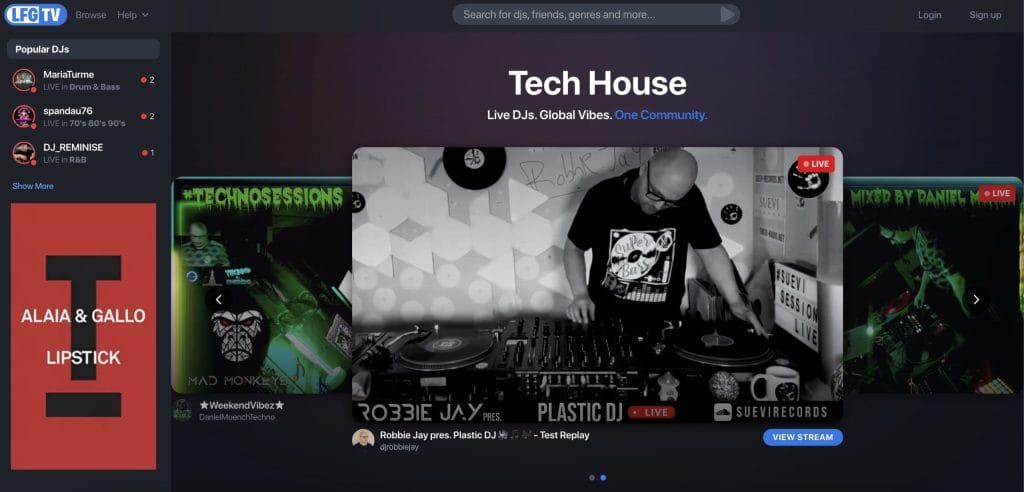
Licensing is the biggest hurdle for DJs online. How did you approach securing the pre-cleared agreements that allow you to avoid takedowns?
Licensing has always been the elephant in the room for DJs online — it’s the reason so many sets disappear after a day or two. From the start, we knew that if LFG.TV was going to be taken seriously, we had to solve that problem head-on. We approached labels, publishers, and rights holders with full transparency, showing them that our platform is designed to celebrate and elevate their music, not exploit it.
By securing pre-cleared agreements with key partners, we’ve created an environment where DJs can perform without fear of takedowns, and rights holders know their work is being respected and represented properly. It’s about building trust across the ecosystem — DJs, labels, and fans all benefit when the music stays live.
You launched with backing from inMusic, Beatport, Toolroom, and Defected. How did those relationships come together?
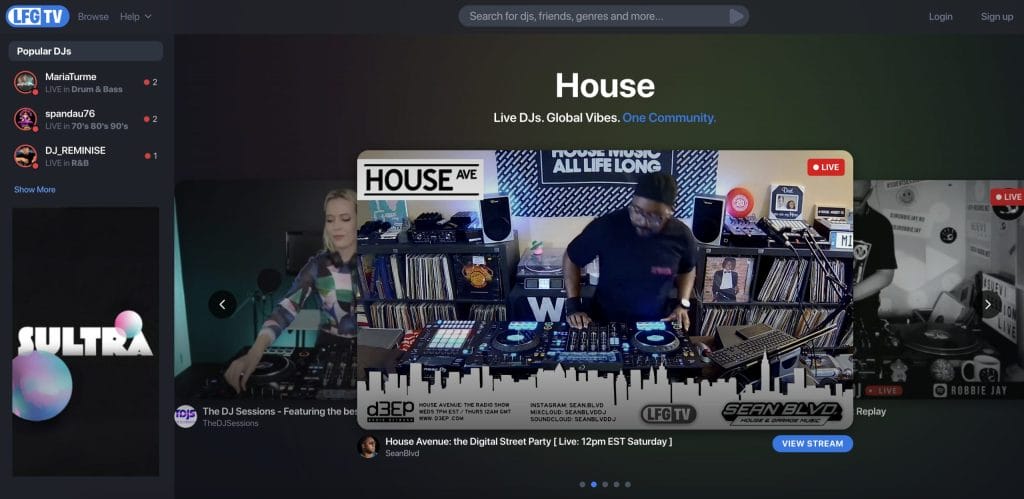
“Those relationships really came together because of trust and shared vision. I’ve been around this industry long enough to know that partnerships only work when everyone believes in what you’re building. With inMusic, Beatport, Toolroom, and Defected, there was an instant alignment — they understood that LFG.TV isn’t just another streaming outlet, it’s a platform created by and for the DJ culture. These are people and companies who’ve pushed dance music forward for decades, and they saw that we’re trying to do the same in a new space. It wasn’t about chasing deals, it was about connecting with partners who want to elevate DJs and the community at large. That’s why it clicked so naturally.”
Have you had conversations with major festivals or venues about integrating LFG.tv for hybrid events?
Absolutely.
From day one we’ve looked at LFG.TV not just as a streaming platform, but as a bridge between the live and digital worlds. We’ve already had conversations with major festivals and venues about how hybrid integrations could expand their reach — giving fans who can’t physically attend a front-row experience while also adding new revenue and visibility for the event itself. The interest has been strong because festivals know the demand is global, not just local. What excites us most is creating solutions that enhance the live experience rather than replace it. LFG.TV can amplify the energy of a festival and extend it to fans worldwide, while keeping the integrity of the dance floor at the core.
How do you see the role of LFG.tv in creating a sustainable income stream for DJs who aren’t touring regularly?
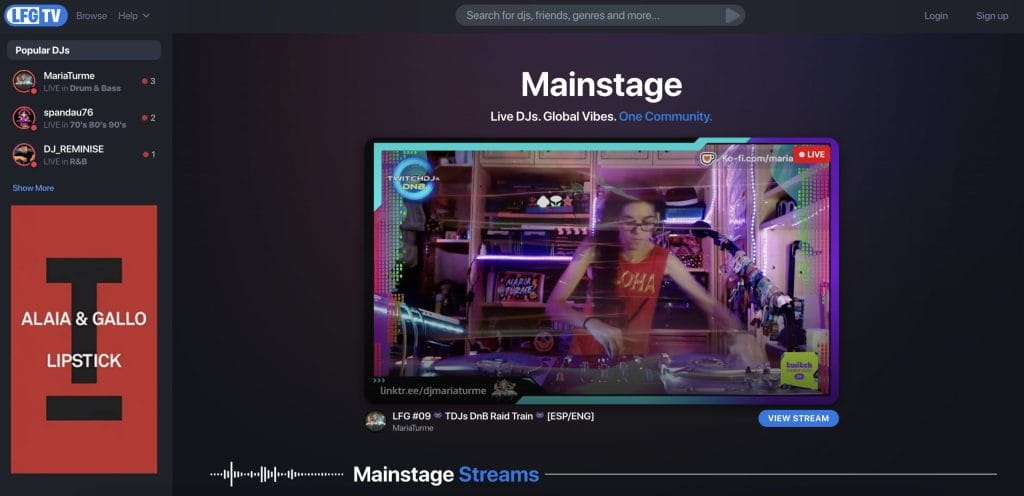
One of the core reasons we built LFG.TV was to give DJs new ways to earn without being on the road 200 nights a year. Touring will always be part of the culture, but it’s not sustainable for everyone — and it leaves out an entire generation of talented DJs who deserve visibility and income.
With LFG.TV, the value isn’t just in the live stream, it’s in creating a structured ecosystem where sets can be monetized, performances are licensed and protected, and DJs get clear credit and compensation. We’re building revenue models that reward consistency and community, not just ticket sales. For us, sustainability means DJs can focus on their craft, connect with fans globally, and know that the platform is designed to support their livelihood long-term.
If you fast-forward three years, what do you hope DJs and fans are saying about the platform?
Three years from now, I want DJs to be saying, ‘LFG.TV finally built a platform that has our back.’ That it gave them a space to perform, be seen, and be compensated in a way that feels fair and transparent.
And I want fans to be saying, ‘This is where I discovered my favorite sets, my favorite DJs, and where I felt closest to the culture.’ If we do our job right, LFG.TV won’t just be another streaming service — it’ll be a trusted home for the global DJ community, where both artists and audiences feel like they’re part of something bigger than themselves.
The post No Takedowns, No Gatekeeping: Inside the Launch of LFG.TV appeared first on Magnetic Magazine.



